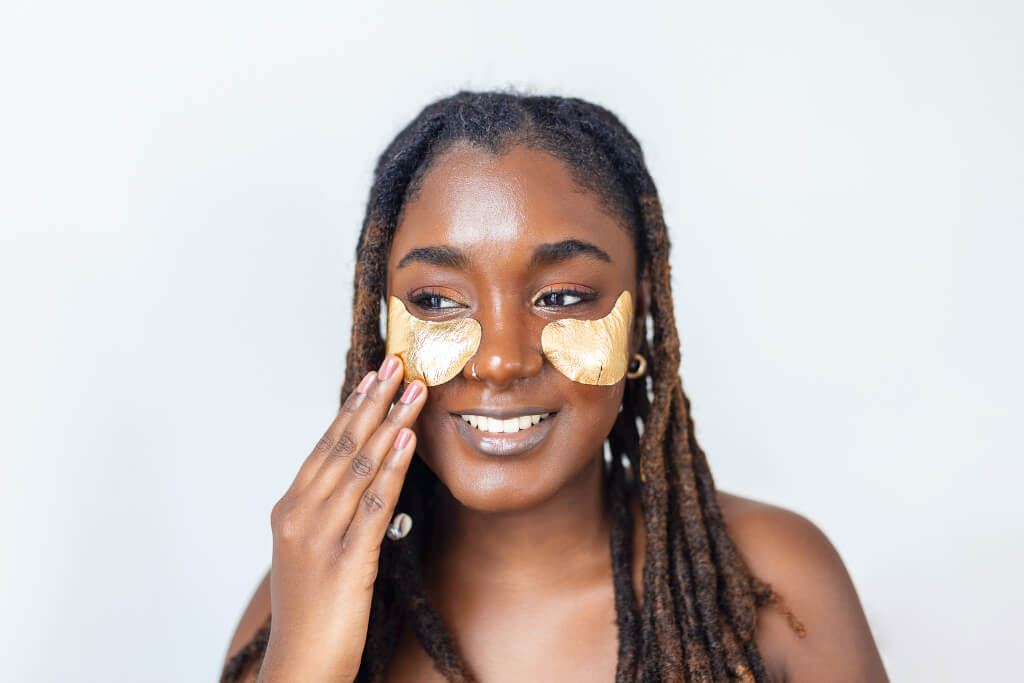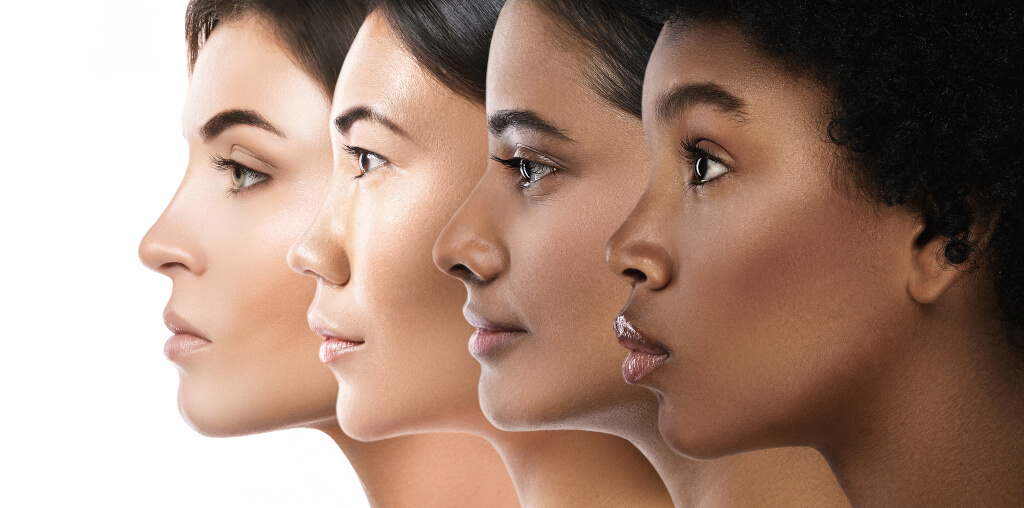Acne scars and dark spots can be unwelcome reminders of past acne breakouts. These skin imperfections, often visible on the face and neck, can affect our self-esteem and confidence. The good news is that with the right knowledge and treatments, you can significantly improve the appearance of these blemishes and restore your skin’s natural beauty.
In this comprehensive guide, we will delve deep into the world of skincare, exploring the differences between acne scars and dark spots, understanding their causes, and providing an in-depth look at various treatment options. Our goal is to equip you with the knowledge and tools to achieve clear, radiant skin.
Understanding Acne Scars and Dark Spots
Before we dive into treatments, it’s crucial to distinguish between acne scars and dark spots, as they have different characteristics and require different treatment approaches.
- Acne scars are the result of severe acne breakouts. They go beyond the surface of the skin, affecting its texture and structure. These scars form when the body’s immune system attacks the damaged skin cells, leading to the replacement of the damaged tissue with denser, less pliable tissue. Unlike dark spots, acne scars do not naturally fade away over time.
- Dark spots, also known as hyperpigmentation, are caused by an excess of melanin in the skin. They appear as patches of dark pigmentation on the skin’s surface. Common causes of dark spots include sun exposure, hormonal changes, and inflammation. Unlike acne scars, dark spots are on the skin’s surface and can fade over time with the right treatments.
Can You Tell the Difference Between Acne Scars and Dark Spots?
Now that we’ve clarified the distinction between acne scars and dark spots let’s delve further into the differences between these skin blemishes:
- Acne scars are often characterized by their depth and texture. They can manifest as raised or depressed areas of skin, depending on the type of scarring. Types of acne scars include icepick scars, boxcar scars, and rolling scars, each with unique characteristics. Acne scars are typically more challenging to treat due to their deeper nature, and they require specialized treatments aimed at stimulating collagen production and skin regeneration.
- Dark spots, as the name suggests, are patches of darker pigmentation on the skin’s surface. They are usually flat and do not have the raised or depressed texture seen in acne scars. Dark spots can vary in size and intensity, ranging from small, barely noticeable spots to larger, more prominent patches. The primary cause of dark spots is an overproduction of melanin in response to inflammation, hormonal changes, or sun exposure.
Effective Solutions for Dark Spots

Now that we have a clear understanding of dark spots, let’s explore effective treatments to help fade and eliminate them:
1. Lightening creams are a popular choice for treating dark spots caused by acne. These products often contain ingredients like Vitamin C, retinol, kojic acid, and salicylic acid. These components work together to:
- Even out skin tone.
- Reduce irritation.
- Fade dark spots gradually.
When incorporating lightening creams into your skincare routine, it’s essential to be consistent and patient, as results may take some time to become visible.
2. Chemical peels are another effective method for addressing dark spots. These treatments involve applying a chemical solution to the skin’s surface, which exfoliates the outer layer of dead skin cells. Some chemical peels also include skin-lightening agents, making them suitable for dark spot treatment.
3. Microdermabrasion is a mechanical exfoliation method that removes the top layers of skin, helping to lighten dark areas and improve overall skin texture. It’s a gentle yet effective option for treating dark spots.
4. While primarily used for acne scar removal, IPL and laser treatments can also help lighten dark spots. These procedures utilize targeted light energy to break down excess melanin, gradually fading dark spots.
5. Prevention is key when it comes to dark spots. Regularly applying broad-spectrum sunscreen with a high SPF can help prevent further darkening of existing spots and protect your skin from harmful UV rays.
6. Topical Treatments
- Niacinamide: This vitamin, also known as Vitamin B3, is a potent antioxidant that can help reduce inflammation and diminish dark spots.
- Alpha Hydroxy Acids (AHAs): AHAs are naturally occurring acids that encourage the shedding of dead skin cells and promote the growth of new, healthy skin. They can be found in various gels, serums, and lotions designed for dark spot treatment.
- Retinoids: Retinoids, such as retinol, promote collagen production and skin cell turnover, aiding in the gradual fading of dark spots.
Treatment Options for Acne Scars
Acne scars require a different approach due to their deeper and more permanent nature. Here are some effective treatments for addressing acne scars:
1. Microneedling, also known as collagen induction therapy, involves the use of tiny needles to create controlled micro-injuries in the skin. This process stimulates collagen and elastin production, leading to improved skin texture and reduced scarring.
2. Dermal fillers can be injected into depressed acne scars to temporarily plump and smooth the skin’s surface. While the effects are not permanent, they can provide significant improvement in the appearance of scars.
3. Chemical peels can be beneficial for addressing certain types of acne scars. They work by removing the top layer of skin, which can help improve the texture and appearance of scars.
4. Laser treatments, such as fractional laser therapy and CO2 laser therapy, can target deep acne scars by stimulating collagen production and resurfacing the skin. These treatments are more aggressive and typically require some downtime for recovery.
5. PRP therapy involves extracting a small amount of your blood, processing it to concentrate the platelets, and then injecting the PRP into acne scars. The growth factors in PRP promote tissue regeneration and collagen production, aiding in scar improvement.
6. Subcision is a surgical procedure that involves the use of a needle to break the fibrous bands beneath the skin’s surface that cause rolling acne scars. This can help elevate depressed scars and improve their appearance.
7. Punch excision is a surgical technique used to remove individual acne scars. It involves cutting out the scar and suturing the surrounding skin. This method is typically reserved for specific types of scars.
Natural Remedies for Acne Scars and Dark Spots
If you prefer an all-natural approach to skincare, there are several remedies you can consider:
- Tea tree oil is known for its anti-inflammatory properties and can be applied directly to acne scars and dark spots. Its natural healing properties may help reduce redness and improve skin texture.
- A mixture of almond oil and baking soda can be used as a gentle exfoliating scrub. Massage this mixture into your face, neck, and chest before bedtime to help reduce the appearance of scars and dark spots.
- Green tea is rich in antioxidants and has anti-inflammatory properties. Brew some green tea, let it cool, and use it as a refreshing face mask to soothe the skin and promote even skin tone.
- Mix honey with a few drops of cinnamon or turmeric and apply it to your face, neck, and chest before bedtime. Honey has natural antibacterial properties and can help fade dark spots and acne scars over time.
Medication-Based Treatment for Acne Scars
If natural remedies and over-the-counter products haven’t yielded the desired results, you may consider medication-based treatments. Here are some options:
- Retinoids, including retinol and prescription-strength retinoids, are known for their ability to stimulate collagen production and promote skin cell turnover. They can help improve the appearance of acne scars over time.
- Azelaic acid is a naturally occurring acid that can reduce inflammation and increase the production of new skin cells. It is available in both over-the-counter and prescription formulations.
- Vitamin C can help fade acne scars and improve skin texture due to its antioxidant properties. Be cautious when selecting a product, as high-quality formulations are essential to avoid potential side effects.
- Niacinamide, also known as Vitamin B3, is commonly found in acne treatments. It can help diminish acne scars and reduce redness, contributing to an improved complexion.
We’ve covered everything you need to know about treating acne scars and dark spots. We’ve explored the differences between these skin concerns, their causes, and a wide range of treatment options. Whether you choose natural remedies, over-the-counter products, or medical treatments, remember that consistency and patience are key to achieving the best results.
Combining multiple treatments, maintaining a dedicated skincare routine, and protecting your skin from further damage through sun exposure are essential steps in your journey toward clearer, healthier, and more radiant skin.




